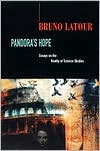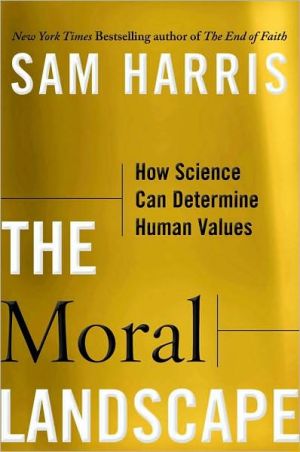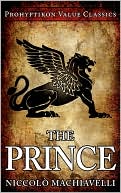Pandora's Hope: Essays on the Reality of Science Studies
A scientist friend asked Bruno Latour point-blank: "Do you believe in reality?" Taken aback by this strange query, Latour offers his meticulous response in Pandora's Hope. It is a remarkable argument for understanding the reality of science in practical terms.\ In this book Latour, identified by Richard Rorty as the new "bête noire of the science worshipers," gives us his most philosophically informed book since Science in Action. Through case studies of scientists in the Amazon analyzing...
Search in google:
A scientist friend asked Bruno Latour point-blank: "Do you believe in reality?" Taken aback by this strange query, Latour offers his meticulous response in Pandora's Hope. It is a remarkable argument for understanding the reality of science in practical terms.In this book Latour, identified by Richard Rorty as the new "bête noire of the science worshipers," gives us his most philosophically informed book since Science in Action. Through case studies of scientists in the Amazon analyzing soil and in Pasteur's lab studying the fermentation of lactic acid, he shows us the myriad steps by which events in the material world are transformed into items of scientific knowledge. Through many examples in the world of technology, we see how the material and human worlds come together and are reciprocally transformed in this process.Why, Latour asks, did the idea of an independent reality, free of human interaction, emerge in the first place? His answer to this question, harking back to the debates between Might and Right narrated by Plato, points to the real stakes in the so-called science wars: the perplexed submission of ordinary people before the warring forces of claimants to the ultimate truth. Noah J. Efron - Boston Book Review [Pandora's Hope] brims with insight, and is frequently brilliant. It does what one always hopes for, but so rarely finds, in a philosophy book; it shakes assumptions so deeply held that you hardly knew they were there. It takes the world, reshuffles it, and deals it back; the cards are all the same, but the hand is crucially different...Pandora's Hope, and its author, demand serious attention...Latour asks jarring and important questions and proposes jarring and brilliant answers. Kafka once wrote that a good book ought to have the fearsome impact of an ice ax. Pandora's Hope does this. Having finished it, I am bloodied and befuddled. And I can think of no greater compliment for a book, or heartier endorsement.
1"Do You Believe in Reality?" News from the Trenches of the Science Wars12Circulating Reference: Sampling the Soil in the Amazon Forest243Science's Blood Flow: An Example from Joliot's Scientific Intelligence804From Fabrication to Reality: Pasteur and His Lactic Acid Ferment1135The Historicity of Things: Where Were Microbes before Pasteur?1456A Collective of Humans and Nonhumans: Following Daedalus's Labyrinth1747The Invention of the Science Wars: The Settlement of Socrates and Callicles2168A Politics Freed from Science: The Body Cosmopolitic2369The Slight Surprise of Action: Facts, Fetishes, Factishes266Conclusion: What Contrivance Will Free Pandora's Hope?293Glossary303Bibliography312Index317
\ American ScientistIn this book of impassioned and creative explorations into scientific life, Bruno Latour offers himself as a reasonable man who is ready and willing to lead combatants of the "science wars" off the battle plain and onto higher ground...The text is comprised of essays about the genesis of and context for the science wars, case studies of scientific practice and elaboration of his current theoretical stances. His writing can be stimulating, fresh and at times genuinely moving...It is hard not to be caught up in the author's obvious delight in deploying a classic work from antiquity to bring current concerns into sharper focus, following along as he manages to leave the reader with the impression that the protagonists Socrates and Callicles are not only in dialogue with each other but with Latour as well.\ — Katherine Pandora\ \ \ \ \ \ Boston Book Review[Pandora's Hope] brims with insight, and is frequently brilliant. It does what one always hopes for, but so rarely finds, in a philosophy book; it shakes assumptions so deeply held that you hardly knew they were there. It takes the world, reshuffles it, and deals it back; the cards are all the same, but the hand is crucially different...Pandora's Hope, and its author, demand serious attention...Latour asks jarring and important questions and proposes jarring and brilliant answers. Kafka once wrote that a good book ought to have the fearsome impact of an ice ax. Pandora's Hope does this. Having finished it, I am bloodied and befuddled. And I can think of no greater compliment for a book, or heartier endorsement.\ — Noah J. Efron\ \ \ \ ChoiceLatour is concerned with making a case for the emerging field of "science studies," a discipline that proposes to study science and the scientific process itself on a philosophical and conceptual level. After an introductory chapter in which he lays the groundwork for science studies and its contributions to our knowledge of the nature of reality, Latour then provides a series of case studies showing scientists from various fields in action. In these case studies, which range from an analysis of a field trip by soil scientists in the Amazon to Louis Pasteur's investigations of lactic acid fermentation in yeast, Latour carefully dissects the seen and unseen components of the scientists' activity and thought. Latour's engaging, clear writing style makes a difficult subject much easier to comprehend.\ — R. K. Harris\ \ \ \ \ \ Interdisciplinary Science ReviewsHis work sparkles with wit, sharp scholarship, graceful tropes, homely but apt metaphors, personal anecdotes at his own expense, and other jewels of the art of persuasion. It is always a pleasure to read or listen to Bruno, just for the vitality and fun of his mind.\ — John Ziman\ \ \ \ \ \ New ScientistShow Latour an intellectual war zone and he'll leap into the middle, to do battle with both sides...You can rely on [Pandora's Hope] to shake your ideas up. And that's almost never a bad thing, in science or elsewhere.\ — Mike Holderness\ \ \ \ \ \ Times Higher Education SupplementPandora's Hope is Latour's systematic defense of science studies, starting with impressions of his sojourn with five naturalists in Amazonia...His observations of [them] are overwhelmingly persuasive, and without a hint of supercilious hostility to the cause of science. Latour is proud to have been cited as co-contributor to their research report, and they must be equally pleased to figure in his.\ \ \ \ \ \ BooknewsRecognizing that "science studies" implies a unified discipline rather than the actual state of science wars, Latour (Center for the Study of Innovation, School of Mines, Paris) in nine recent papers discusses whether he believes in reality. E.g. in pondering whether there were microbes before Pasteur, he hedges his bets with the concept of "relative existence." Annotation c. Book News, Inc., Portland, OR (booknews.com)\ \








